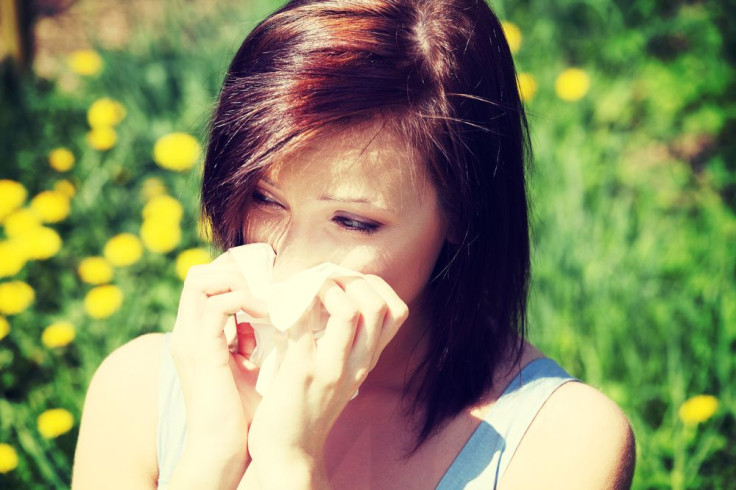Allergic Reactions Are More Frequent And Severe In Female Mice Due To Presence Of Estrogen

Although doctors have long observed that females are prone to more frequent and more severe allergic reactions when compared to their male counterparts, they have struggled to come up with a valid explanation for this disparity. Recently, a team of scientists working with the Institute of Allergy and Infectious Diseases has confirmed that, in mice, the female hormone estrogen is the reason for this increased sensitivity to allergies.
Estrogen is a general term for a group of hormones involved with sexual reproduction and developments, particularly in women. According to Live Science, these hormones are involved with many aspects of female sexuality, ranging from puberty developments to regulating the menstrual cycle. As shown in a recent study, these hormones are also involved with the biological reaction to a foreign allergen. Although more research is needed, this suggests the same may ring true for humans.
In the study, researchers analyzed the anaphylaxis, or allergic reactions, of female and male mice. According to the press release, food, medication, or insect stings or bites may trigger anaphylaxis. When a foreign allergen is introduced to the body, it responds by releasing immune cells, particularly mast cells. These immune cells release enzymes which cause tissues to swell and cause blood vessels to widen. These reactions can be observed as skin reddening or rash, difficulty breathing, and in the most severe cases, shock or heart attack. Past research has shown that reactions tended to be stronger in females, and the team of researchers set out to test their theory of whether or not this had to do with estrogen.
The team found that estrogen increased the levels and activity of endothelial nitric oxide syntheses (eNOS). This is a type of enzyme responsible for some of the symptoms of anaphylaxis. To test whether or not estrogen’s influence on eNOS was the cause of female allergic reactions, the team blocked the eNOS activity completely in a group of mice. When this was done the gender disparity disappeared completely. The researchers also blocked estrogen in female mice and saw this also closed the gender gap and caused a significant reduction in allergic responses.
The scientists are not sure whether or not estrogen is the cause for increased allergic reactions in human females, but according to the press release, they plan to test this in future studies.
Although it’s not believed that allergies are more prevalent in women, it has also been suggested that women are more likely to diagnose their allergies than men, which may also lead to the allergy gap among the sexes, Medical News Today reported.
Women also experience similar disparities with asthma, and doctors believe this may be linked to female hormones. One theory is that fluctuations in estrogen can cause inflammation of the airways and lead to asthma.
Simply because women may be naturally at a higher disposition to allergies or asthma is not cause for alarm. Most times these reactions can be kept in check, and severe life-threatening reactions are rare.
Source: Hox V, Desai A, Bandara G, et al. Estrogen increases the severity of anaphylaxis in female mice through enhanced endothelial nitric oxide synthase expression and nitric oxide production. The Journal of Allergy and Clinical Immunology. 2014.
Published by Medicaldaily.com



























